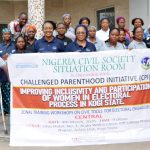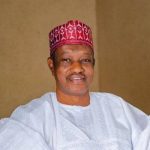Human Rights Activist Idris Miliki Demands Accountability from Kogi State Government
The Executive Director of Conscience for Human Rights and Conflict Resolution (CHRCR), Idris Miliki Abdul, has raised several questions regarding the performance of the Kogi State government under Governor Usman Ododo.
Abdul’s queries aim to hold the government accountable for its actions and policies.
Abdul’s questions include:
– What is the percentage of Kogi State workers in the government’s employment drive?
– How much is the statutory allocation of Kogi State in the last one year?
– Where are the projects started and completed in the last one year?
– How many people have been employed in different sectors in the state?
– What is the infrastructure situation of the education sector, particularly basic education?
– How many houses have been built in the state in the last one year, despite the creation of the Ministry of Housing?
– What initiatives has the state government taken in the transport sector in the last one year?
While commending the government’s efforts in prompt payment of salaries, Abdul emphasized that payment of salaries should not be the only yardstick for evaluating government performance.
He stressed that citizens have the right to demand answers to these questions and expect tangible results in return.
Idris Abdul’s questions highlight the need for transparency and accountability in governance. As the government continues to collect taxes and allocations, citizens have the right to know how their money is being spent and what benefits they are deriving from it.
He noted that the voters who elected Governor Ododo are far more than the civil servants in the state, emphasizing that the government should prioritize the needs of all citizens, not just workers.
He demands for accountability and transparency are a call to action for the Kogi State government to deliver tangible results to its citizens.
“I urge the governor to spend more time in the state to directly address the recent surge in security challenges. By being more present, the governor can better understand the issues, make informed decisions, and implement effective solutions to ensure the safety and well-being of citizens.’
However, the government is expected to provide answers to these questions and demonstrate its commitment to serving the people.












